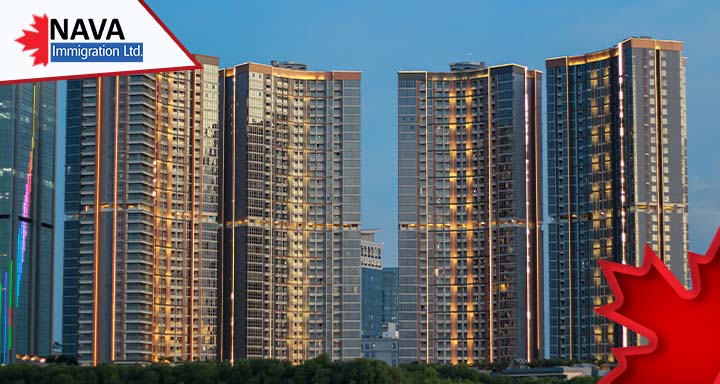The Most Important Things To Know About Renting In Canada
Newcomers to Canada might be unfamiliar with the renting aspect. For instance, tenants can enjoy protections under some provincial rental regulations, but they might fail to take advantage of these protections if they haven’t learned about them. Well, here are the most important things to know about renting in Canada.
Rent Control
Some provinces have rent control regulations.
Such regulations limit when a landlord can raise the rent of the property and by how much.
You might be able to save money by taking into account rent control regulations when choosing a property.
If rent control does not apply to your property, you might benefit from budgeting for larger increases on renewal.
The following table provides some details on rent control in the applicable provinces:
| Province | Rent Increase Caps (2024, 2025) | Additional Restrictions | Exemptions To Rent Control |
| British Columbia | – 2024 rent increase limit: 3.5% – 2025 rent increase limit: 3% | – Rent can be increased once in every 12 months – Landlords should offer three months notice – Utilities and other fees can only be increased with tenant’s agreement | |
| Manitoba | – 2024 rent increase guideline: 3% – 2025 rent increase guideline: 1.1% economic adjustment factor | Rent increase guideline applies to most rental units | Units exempt from the guideline include high-rent units and government-owned properties |
| Ontario | – 2024 rent increase guideline: 2.5% – 2025 rent increase guideline: 2.5% | Note: Rent control policies only apply to residential buildings first built or occupied before November 15, 2018 – Rent can be increased once in every 12 months – Proper written notice of at least 90 days required | Exceptions include new buildings and most new basement apartments |
| Prince Edward Island | – 2024 rent increase guideline: 3% – 2025 rent increase guideline: To be set annually by the Director of Residential Tenancy | – Rent increase can occur once a year – Landlords should provide three months notice | Increase above the allowable amount required application to Rental Office |
No other provinces or territories have rent control policies at this time. Landlords in non-rent-controlled jurisdictions can raise rent to whatever amount they want once your lease ends or comes up for renewal.
End Of The Lease/ Evictions
Another thing to know about renting in Canada is to consider certain factors for entering into a lease. They are:
- Whether your lease will auto-renew or is renewable versus whether you will have to vacate at the end of your lease
- The length of notice you must give to terminate your lease
- Wrongdoings for which your landlord might be able to evict you
- The situations in which your landlord can evict you without any wrongdoing on your part
The combination of your lease agreement and the applicable provincial regulations will determine the above factors.
For a fixed-term lease, you have to vacate the property at the end of the lease.
There are certain exceptions to this, such as Ontario, where your lease will automatically transition to a month-to-month at the end of the fixed term unless you notify the landlord you will be vacating.
For month-to-month leases, you will have to give a month’s notice before terminating your lease.
In Prince Edward Island and Ontario, you must give 2 months’ or 60 days’ notice.
Moreover, under certain circumstances, you have to leave the property when the landlord terminates your lease, regardless of whether you want to move out.
The situation in which a landlord can terminate your lease will vary based on the provincial jurisdiction and/or your lease agreement. But in general, landlords can evict you for failing to adhere to your obligations as a tenant or for bad behavior, like:
- Non-payment of rent
- Property damage
- Breach of lease terms
- Health and safety violations
- Interfering with the enjoyment of other occupants
There might also be out-of-control reasons for a landlord to evict you. Once again, this varies by province, but here are some common examples.
- The landlord desires to sell the house
- The landlord required the property for personal use
- The building is no longer safe to occupy
Landlords must provide written notice with the date they will evict you. Tenants across Canada have the right to dispute lease terminations through local tenancy boards or tribunals. The process for this will vary based on the province and local housing authority.
How Much Should I Expect To Spend?
Another thing to know about renting in Canada is how much you have to spend. This will heavily depend on the property and its location.
The table below shows the median monthly rent for bachelor, one-bedroom, and two-bedroom apartments in some major cities.
| City | Bachelor Apartment | One-Bedroom Apartment | Two-Bedroom Apartment |
| Toronto | $1,900 | $2,335 | $2,969 |
| Vancouver | $2,315 | $2,650 | $3,650 |
| Calgary | $1,599 | $1,790 | $2,297 |
| Edmonton | $1,154 | $1,389 | $1,650 |
| Winnipeg | $931 | $1,325 | $1,725 |
| Montreal | $1,487 | $1,700 | $2,195 |
Beware Condos Bylaws
A unique type of property often found in Canada is the condominium or condo. These are privately owned units within residential buildings.
Condos have different rules than other residential properties.
Tenants looking into renting a condo should ensure they are aware of applicable bylaws specific to that property.
Condos bylaws can place greater restrictions on occupants, like:
- Restrictions on pets
- Restrictions on the number of occupants
Either of the above restrictions would be prohibited by the Residential Tenancies Act in Ontario but are perfectly legal when it comes to condos.
Tenants must also remember that condo regulations are not set in stone. The condo board might change or implement new regulations, which could significantly impact the day-to-day lives of condo tenants.
Avoiding Rental Scams
The last thing to know about renting in Canada is to avoid rental scams. Newcomers must be aware of potential rental scams, which are unfortunately too common.
Falling for a scam could jeopardize your personal funds, your data, or even your physical safety.
A typical rental scam would work as follows. The ‘landlord’ or ‘leasing agent’ shows you a unit, and it’s a great deal. You sign a lease with them and pay either a deposit or something like the first and last month’s rent (in Ontario).
Later, you find out that the person who showed you the property was not actually the landlord or leasing agent. Instead, they were never authorized to rent you the property and have simply pocketed your funds and run off.
Another rental scam could be simple identity theft – the ‘leasing agent’ asks for your ID and other personal information, makes copies of it, and then impersonates you to take out a loan.
The best way to protect yourself from rental scams is to ensure that the person you are dealing with is a bona fide landlord or leasing agent.
The Canadian Mortgage and Housing Corporation (CMHS) provides examples of warning signs to watch out for:
- The rent is far below the current market rate
- You have to leave a deposit without any formal rental agreement or lease in place
- You have to send a security deposit to a landlord outside the country
- You are offered a rental unit without a background check
- When you ask about the rental unit, you receive an email that sends you to a website asking for personal/ financial information
- Ads show pictures/ images of the outside of the unit only or pictures that do not match the actual property
If you seek information on how to begin your Canada immigration application process, you can talk to our NavaImmigration experts at 1800-918-8490, or you can drop us an email at [email protected].





